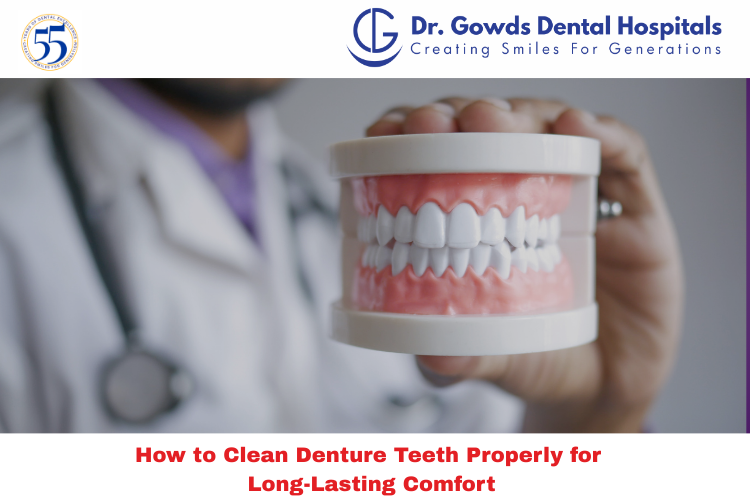Schedule Appointment



A Clean Smile Starts with Denture Teeth Care
Wearing dentures isn’t just about restoring your smile—it’s about maintaining it. Many people assume denture teeth don’t require the same care as natural teeth. But poor hygiene can lead to bad odor, sore gums, and even infections. Whether you wear full or partial dentures, knowing how to properly care for your denture teeth can make all the difference in comfort and confidence.
Denture teeth are most commonly fabricated with acrylic resin or porcelain. Though similar in appearance to natural teeth, they are more porous—i.e., they trap bacteria, stains, and plaque more readily.
If you’re curious about what are dentures or searching for the actual dentures meaning, they’re artificial substitutes for missing teeth that help maintain oral function. But like your own teeth, they need to be cleaned every day and handled with care.
Creating a consistent cleaning routine is key. Here’s how to do it right:
This routine helps extend the life of your dentures while ensuring your mouth stays fresh and healthy.
Common Mistakes That Damage Denture Teeth
Mistakes in denture maintenance can cause irritation and even the necessity for premature replacements. Avoid these:
These errors may have to be paid for at increased dentures cost through replacement or repairs—something easily prevented with proper care.
Notice any of these? It’s time to improve your denture care routine:
Good hygiene isn’t just about appearance—it’s essential for your overall oral health.
Even with perfect care, regular dental check-ups are essential. A dental professional can:
If your dentures feel loose, cause pain, or develop visible damage, book a visit to Dr. Gowds Dental Hospital—we specialize in expert denture care.
At least once daily. Brushing and soaking help prevent stains, odors, and infections.
No. Regular toothpaste is too abrasive and can damage the surface of denture teeth.
Soak them in a denture-cleaning solution or plain water. Avoid hot water.
Signs include pain, difficulty chewing, clicking sounds, or visible movement.
Costs vary, but repairs or replacements can be expensive. Proper hygiene helps you avoid this.